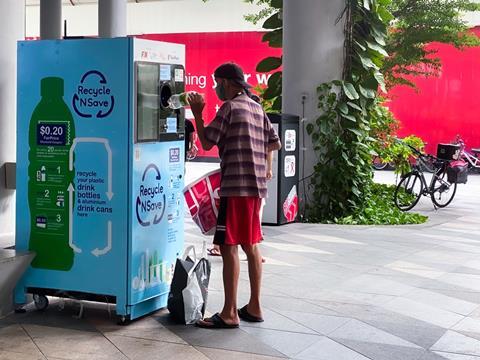
Reloop and the Container Recycling Institute (CRI) have released a study rejecting claims that deposit return systems for beverage containers have a negative impact on sales, suggesting that there is no conclusive evidence to connect them.
”The Impact of Deposit Return Systems on Beverage Sales” reportedly sources its data from ‘nearly a dozen’ deposit return scheme (DRS) markets worldwide, comparing its figures from before the introduction of the scheme to after a DRS was introduced, expanded, or the deposit amount was increased.
According to the report, the fluctuation in beverage sales in these markets was within a normal variation range and aligned with regional trends; as such, it argues that there is no definitive evidence of a correlation between implementing or expanding a DRS and a decrease in sales.
Furthermore, it states that various other factors can impact beverage sales, including supply and demand, health trends and concerns, marketing and advertising campaigns, shifts in purchasing patterns or consumer preferences, and the weather. The ‘complex and multifaceted’ nature of these influences means that DRS alone cannot be blamed for fluctuations in sales, the report assert.
It goes on to warn that some previous studies have relied on speculative approaches instead of historical data to make their own arguments, which would make them unreliable. The president and CEO of CRI and Reloop, respectively, cite ‘decades of data’ indicating that DRS increase container recycling rates, which in turn helps to prevent plastic pollution, marine debris, and climate crises.
They add that, in their view, DRS are the most effective methods of producing clean, high-quality recycled materials in light of the plastic reduction targets from certain brands and recycled content mandates in certain jurisdictions.
“The research we conducted in this study is as complete, thorough and transparent as possible, and represents experiences from all over the world over a two-decade timeframe,” said Susan Collins, president of CRI. “We believe the findings should set to rest the fears of beverage producers and distributors and contribute to a more informed discourse on the adoption, implementation and expansion of beverage container deposit return systems.”
Reloop CEO Clarissa Morawski added: “While producers often battle the introduction of deposit return systems because they wrongly believe they have a negative effect on sales, their impact assessments ignore the huge financial and compliance benefits of getting back up to 90% of their containers for closed-loop recycling.”
Additionally, they indicate that the operational costs of modern deposit programmes are at least partially offset by revenue from unclaimed deposits and selling empty beverage containers as scrap. Further savings also come from reduced extended producer responsibility expenses for European and Canadian producers, they claim, as well as decreased municipal recycling, disposal, and litter cleanup expenses resulting in lower costs for municipalities and taxpayers.
Because of this, Reloop and CRI refute the suggestion that DRS increase costs across the beverage distribution chain. Instead, they push for a ‘comprehensive understanding of the complex interplay of factors affection beverage sales’.
Collins and Morawksi add: “Adoption of beverage container deposit return systems is increasing rapidly across the globe to support a more circular economy, but we need more progress in the U.S. We hope these study results reduce beverage industry resistance to DRS, enabling the introduction and expansion of programmes that can get more recycled material into the supply chain while reducing litter, marine debris, energy use and carbon emissions.”
The report is available to read on both companies’ websites.
TOMRA released its own report naming functional reverse vending facilities as the third most popular consideration when disposing of empty beverage packaging in a survey of 1000 Swedish, Norwegian, Finnish, Danish, German, Dutch, and Slovakian consumers. Another stated that, amongst ‘high-volume recyclers’, they were the most important factor in choosing a retailer to return their waste for recycling.
In France, Elipso is pushing for policymakers to harmonise specifications and establish one waste management organisation to roll out a mandatory DRS for plastic bottle recycling – a move hoped to align with upcoming EU legislation.
If you liked this article, you might also enjoy:
The Lidl approach to packaging sustainability
How did Brazil achieve its 100% aluminium can recycling rate – and can it be replicated in the EU?
Experts have their say on the EU’s Packaging and Packaging Waste Directive revisions
A deep dive into the most important packaging sustainability trends and solution















No comments yet